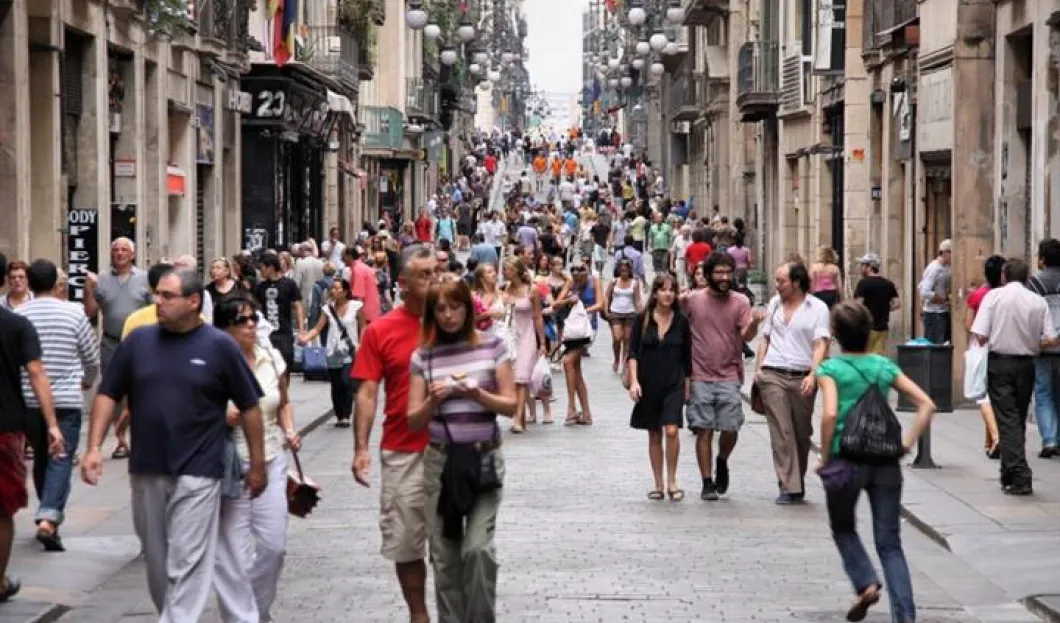
A new regulation in Barcelona, a popular travel destination, prohibits the opening of new hotels in the city center. The city is experiencing a tourism crisis. The number of visitors is the second most serious problem for the city’s residents.
Each year Barcelona receives more tourists than it can accommodate, and the residents view tourism as a threat to the quality of their life. That is why the Barcelona City Council passed a law, which has already come into effect, banning the opening of new hotels in the city center, even if other hotels close down. It is a controversial decision that has pitted the hotel industry against the government, but it is an effort to limit the number of tourists visiting the city.
For many countries worldwide, tourism is a blessing. The industry has a big impact on the nation's GDP, and in some cases it is one of the key parts of their economy. Nevertheless, in several places on the planet, tourism revealed its weaknesses. In Venice, the authorities are considering limiting the number of tourists – every year, the city welcomes more than 22 million visitors. In Dubrovnik, they installed security cameras so that no more than 8,000 tourists stay in its Old City and the Thai islands reduced tourist activities and imposed restrictions so as not to damage their ecosystem.
In Barcelona, "tourist pollution" is an issue that has concerned its residents for years. For the inhabitants of the capital of Catalonia, the tourism crisis is the second most serious problem in the city, after unemployment. In 2014, the current mayor of Barcelona, Ada Colau, who was once a political figure on the rise, wrote a column entitled "Mass tourism can kill a city; just ask the residents of Barcelona.".
In his article Colau claimed that in the large tourist centers of the city, the number of visitors affected not only the quality of life of Barcelonans, but also their ability to live in the area. More than 30 million tourists arrived in Barcelona in 2016, according to official City Hall data.
The Special Urban Development Plan for Tourist Accommodation (PEUAT) will not monitor the exact number of visitors arriving in Barcelona, but will limit the number of hotel rooms in each accommodation and tourist apartment, as well as prohibit the opening of new hotels in certain areas. It will also stop issuing permits to turn apartments into accommodation for servers, such as those of Airbnb.
Nevertheless, it is believed that this plan will not see its effects until 2019. At present there are 75,000 hotel beds in Barcelona and 50,000 in legal tourist apartments, in addition to an estimated 50,000 more that are illegal. This caused a housing crisis which led to increased rent for residents.
The tourist industry is up in arms and has already expressed its opposition by pointing to the fact that restricting tourism in a weak economy like Spain’s is a senseless move, since tourism is equivalent to 12% of GDP in Barcelona.
"The focus of the plan is what’s wrong," said Manel Casals, managing director of the Hotel Business Confederation of Catalonia. "Of the 32 million people who visited Barcelona last year, only 8 million stayed in hotels. The rest were one-day tourists who spent very little money in the city. They are not regulating tourism; they are only regulating the places where they are going to sleep. "
On the other hand, the deputy mayor for Urban Planning, Janet Sanz, stressed that this plan "protects housing, the mix of activities in the city's economy, the quality of public spaces and bases the regulation on the diversity of urban fabric. It’s a plan with which we have started the regulation of tourism and there are many more to come; there’s no turning back.”
With this law, more than 30 projects were stalled and, during the suspension of licenses the plans of major hotel chains such as Four Seasons and the Hyatt are in danger. And yet the residents, on the other hand, believe that the plan falls short. The Assembly of Neighbourhoods for Sustainable Tourism, for example, believes that it should not be possible to create a single bed in Barcelona.










